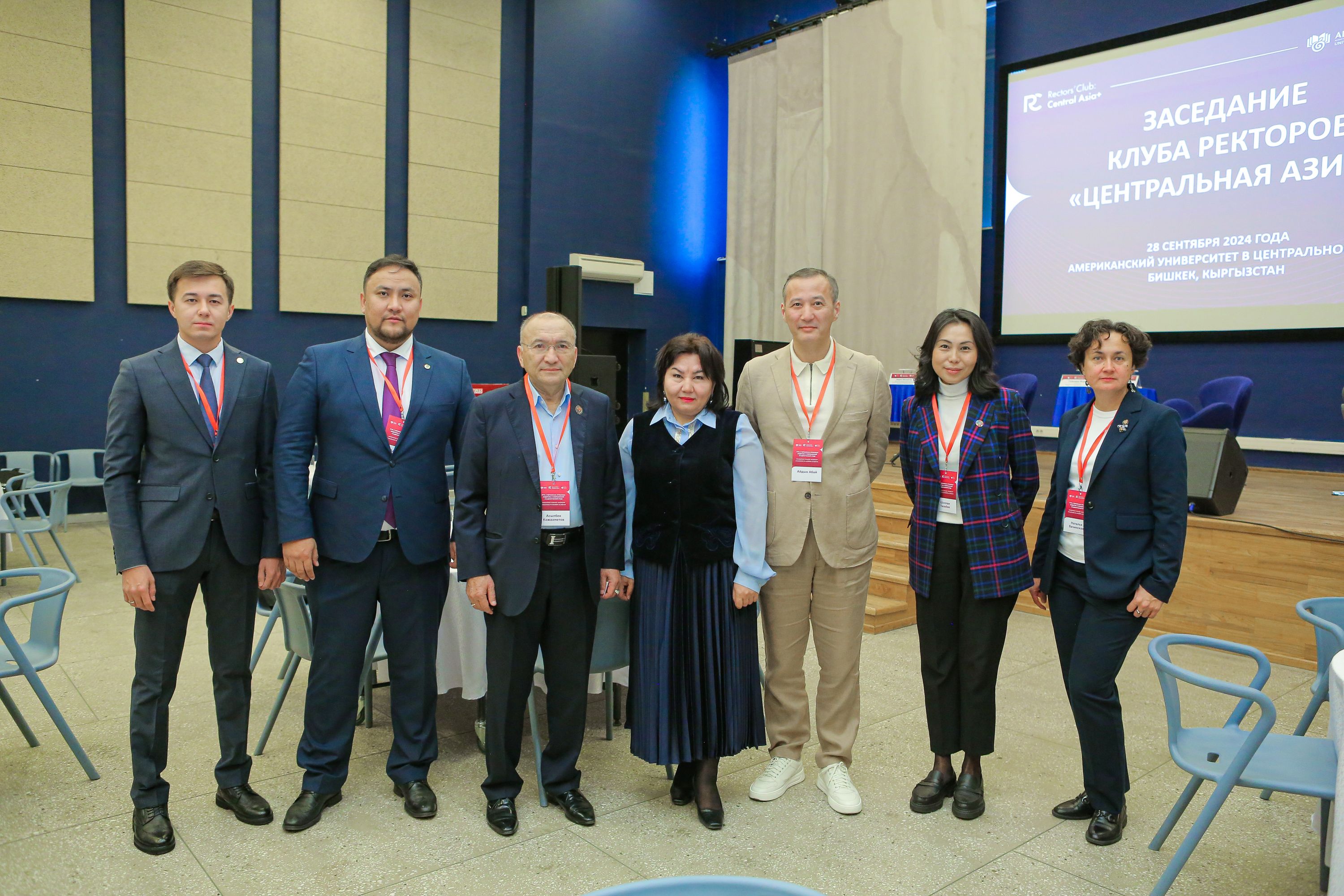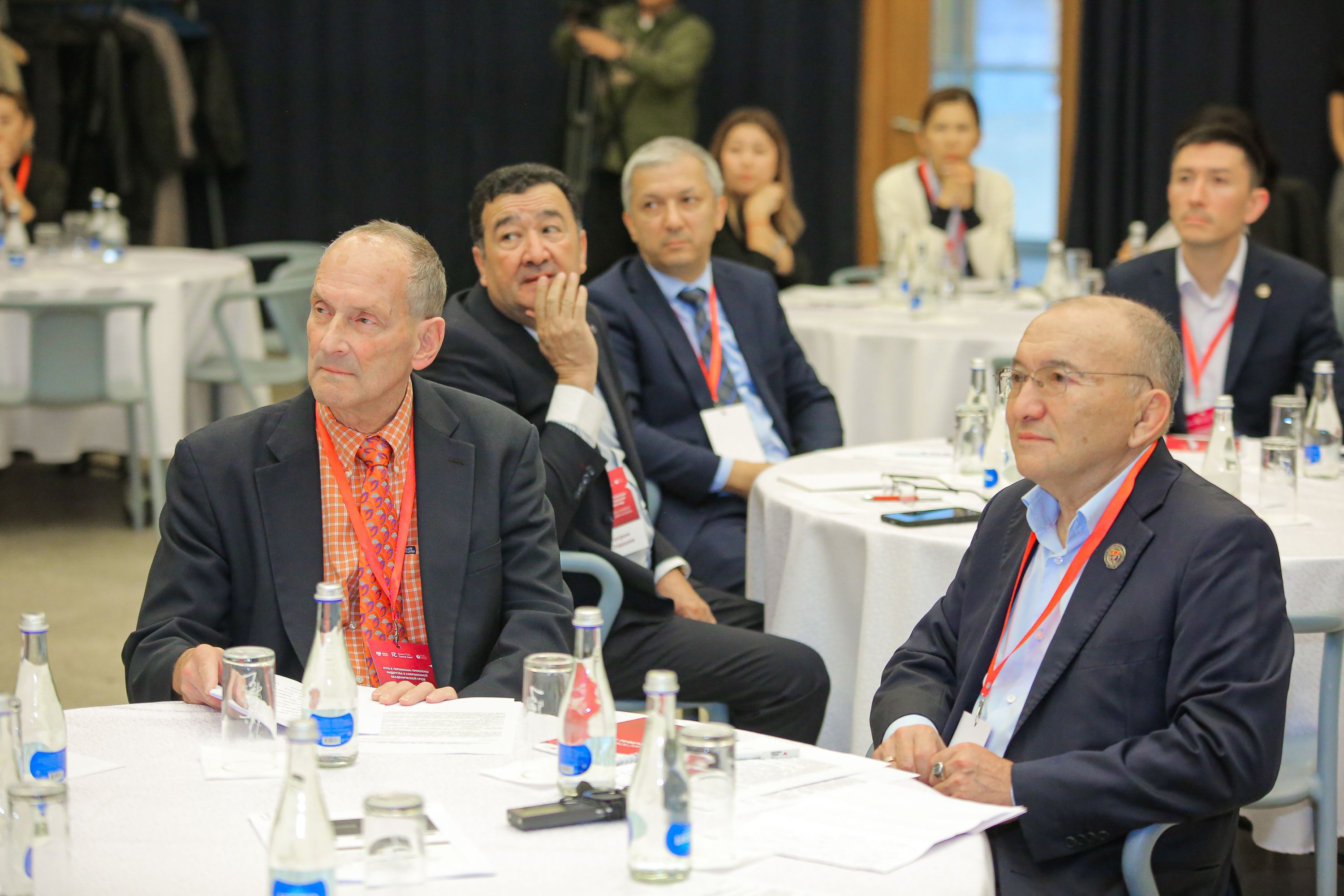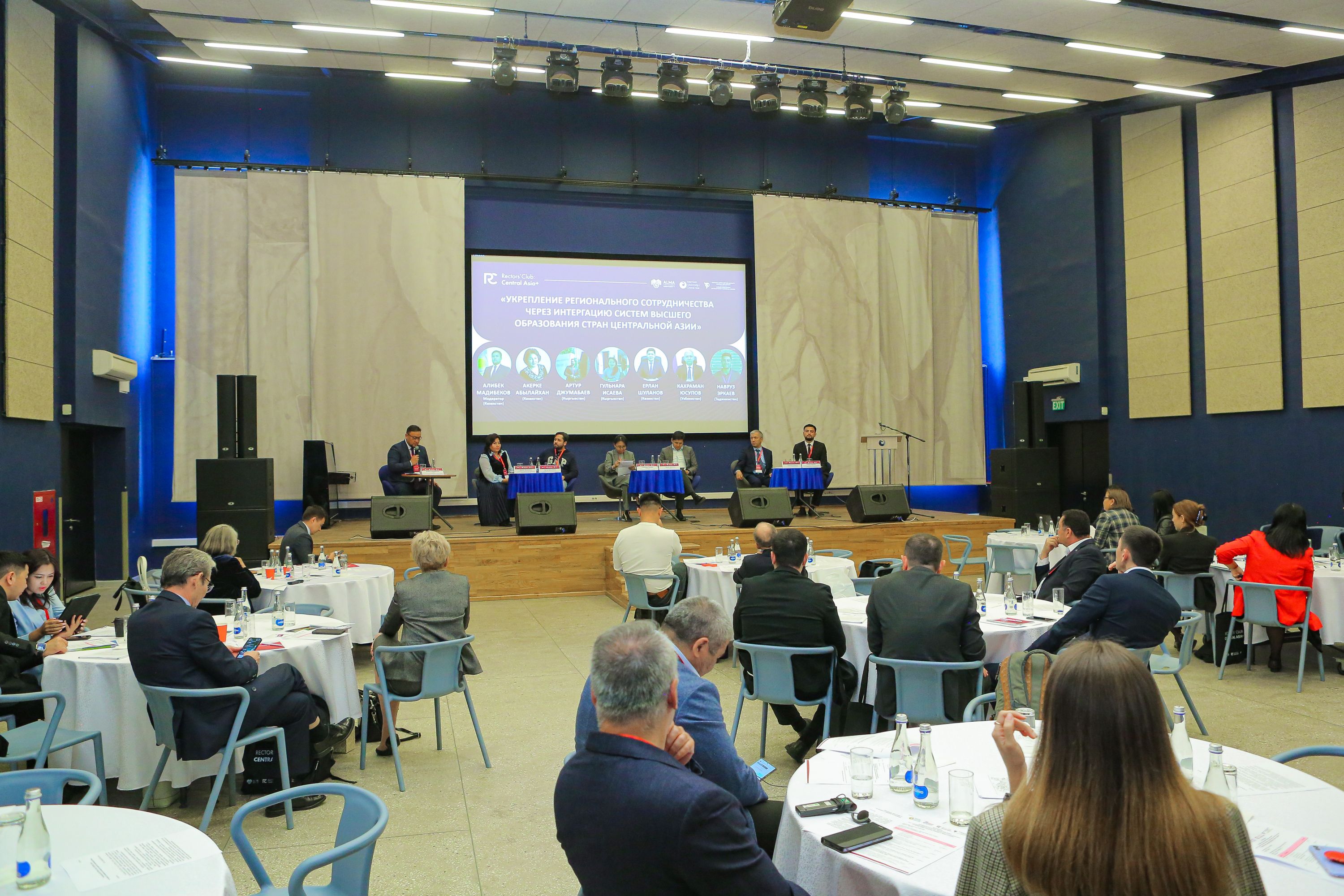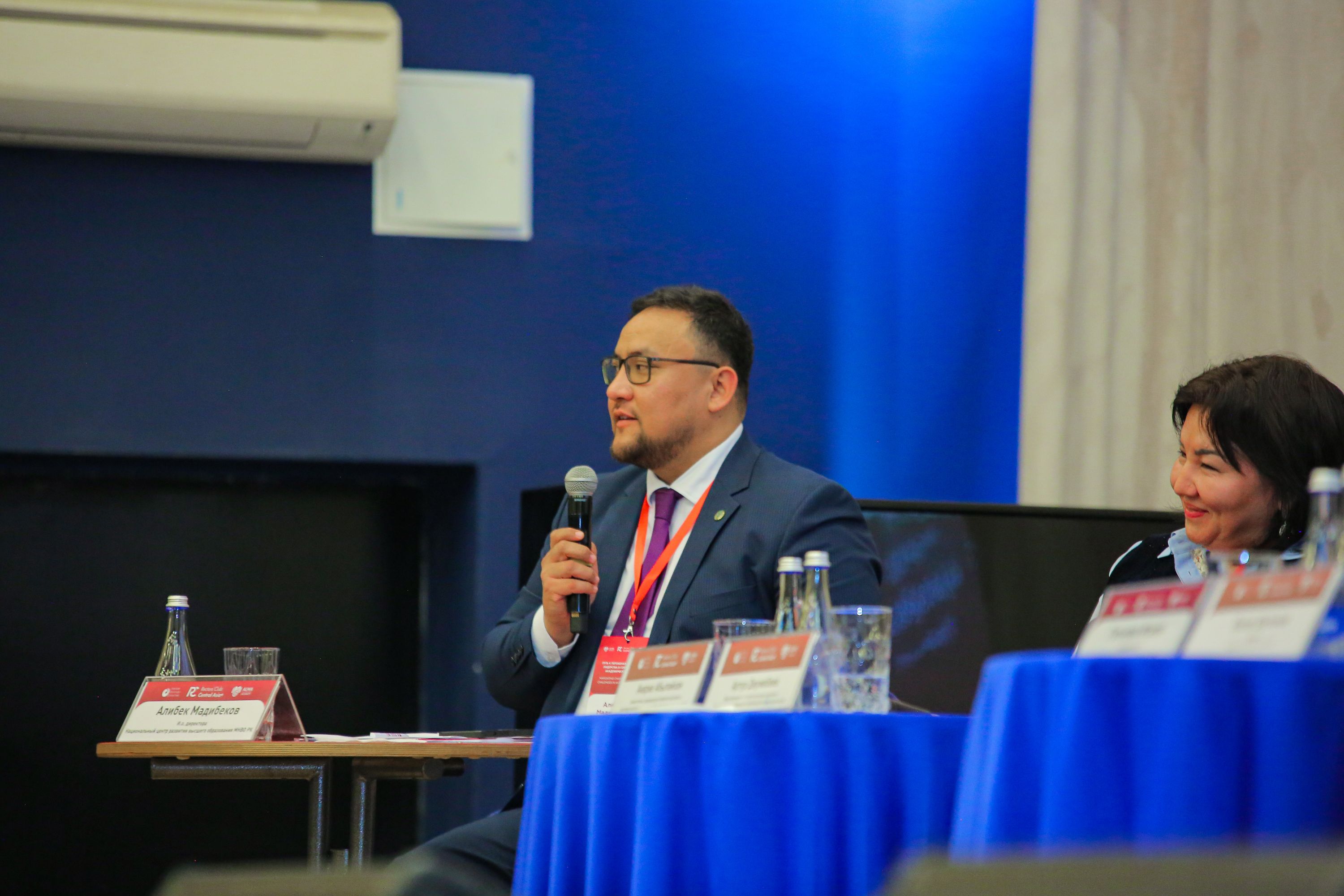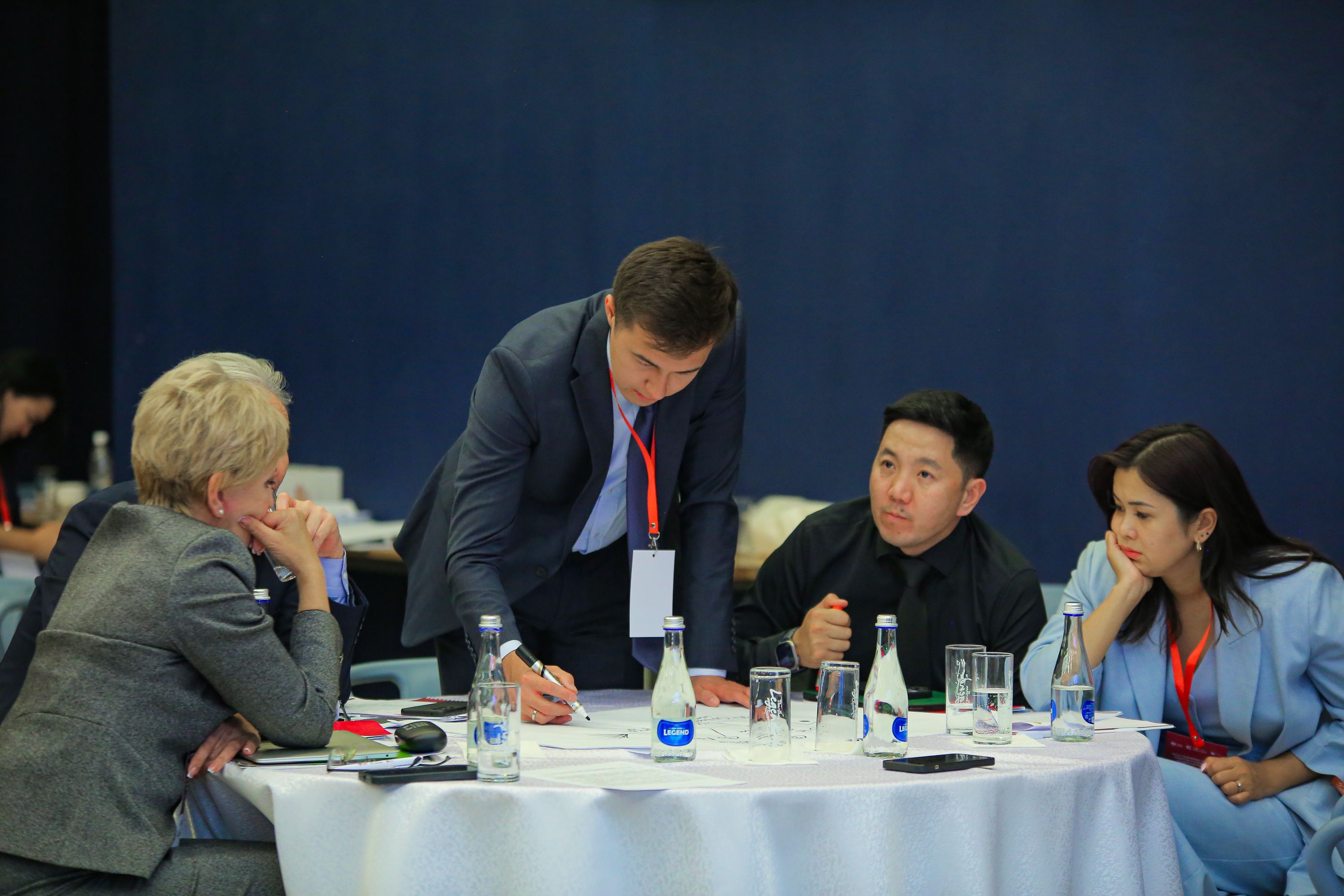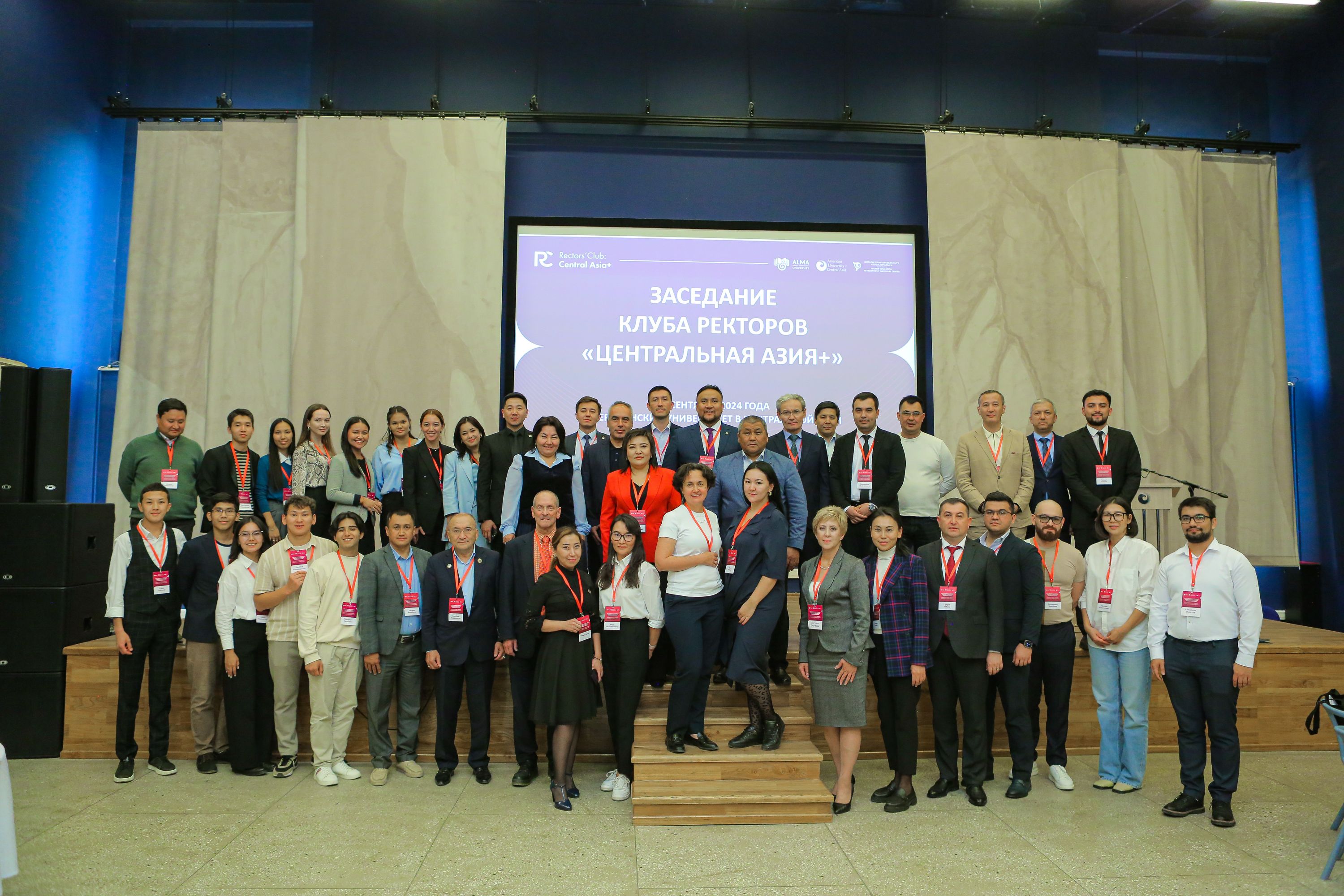The “Central Asia+” Rectors' Club Meeting Held in Bishkek
On September 28, 2024, a meeting of the "Central Asia+" Rectors' Club took place in Bishkek, hosted by the American University of Central Asia (AUCA). The meeting was themed "Path to Change: Leadership Challenges in the Modern Academic Environment." The event brought together more than 50 university leaders, experts, and representatives of educational organizations from Kazakhstan, Kyrgyzstan, Uzbekistan, and Tajikistan, representing 21 universities in the region. Participants gathered to discuss the prospects for the development of the Central Asian Higher Education Area (CAHEA) and to develop joint solutions to the pressing issues of higher education in the region.
During the meeting, key challenges and prospects for higher education in Central Asia were discussed. Particular attention was given to strengthening cooperation between the universities of the region, sharing best practices in academic mobility, and creating mechanisms to adapt educational programs to international standards and regional needs. A significant theme of the meeting was the internationalization of higher education — establishing closer ties between the universities of Central Asia and the European Union. Participants explored the possibility of creating their own initiatives similar to the Erasmus program, allowing students and faculty to freely move between universities in the region, participate in joint research projects, and exchange knowledge. The necessity to expand academic mobility and support multilingualism and cultural diversity to strengthen interregional interaction was emphasized.
The "Central Asia+" Rectors' Club was initiated by Assylbek Kozhakhmetov, President and Founder of Almaty Management University (AlmaU). AUCA President Timothy O'Connor welcomed the participants and expressed gratitude to AlmaU and the Ministry of Science and Higher Education of the Republic of Kazakhstan for their cooperation. In his speech, he noted that modern leadership in education requires new approaches and conscious responsibility, and that only through open dialogue and partnership can global challenges be successfully overcome.
Key speakers also included Anne Catherine Isaacs, Deputy Chair of the Bologna Process Monitoring Group, and Maria Yudkevich, Professor at the University of Haifa, who shared their views on the internationalization of higher education and the development of academic mobility in the region. In his speech, AlmaU President Assylbek Kozhakhmetov emphasized the importance of moving from competition to cooperation between universities in the region. He also called for seeking unique development paths for higher education based on Eurasian and Turkic values and not simply copying international models, but aiming to build civil society through education.
In her speech, Akereke Ablaikhan, Deputy Chair of the Committee for Higher and Postgraduate Education of the Ministry of Science and Higher Education of the Republic of Kazakhstan, addressed pressing issues of integration and collaboration among universities in the region, with a special focus on practical steps to create the Central Asian Higher Education Area. As part of the implementation of the Turkestan Declaration, she proposed the creation of an alliance of universities and an alliance of student organizations, which would become key platforms for the development of cooperation, exchange of experience, and strengthening educational ties in Central Asia.
These initiatives were discussed in a panel session on "Strengthening Regional Cooperation through the Integration of Higher Education Systems in Central Asian Countries," organized in partnership with the National Center for the Development of Higher Education (NCDHE) of the Ministry of Science and Higher Education of Kazakhstan. The session was opened and moderated by Alibek Madibekov, Acting Director of NCDHE MSHE RK. During the session, participants discussed the challenges and prospects for creating an alliance of universities and student organizations, as well as opportunities for deeper interaction between higher education institutions within the framework of regional cooperation.
Overall, the meeting discussed key issues related to strengthening academic partnerships, sharing best practices, developing educational programs in line with international standards, and internationalizing higher education. Special attention was given to creating a free academic zone for student and faculty exchange, which would enhance cultural and academic exchange in the region.
